Did you know, however, that the first light that reaches your eyes each day is an important component of what helps you fall asleep as well as what informs your body of the time of day and when to produce the appropriate hormones for optimal health and sleep so you can face each day with plenty of energy?
The vast majority, however, do not!
Welcome to SIIZ, where we will explain in a simple and entertaining manner some of the most complex biological processes and mind-boggling bodily functions in terms of how light affects us. We'll go over how the amount of light you're exposed to can affect your body's biological processes. What effect your indoor and outdoor light environments have on your sleep, mood, energy levels, and overall well-being. We are confident that, because this information is so fascinating, it will one day be taught in elementary schools, allowing children to quickly appreciate the remarkable biological connection they already have with nature and the rising and setting of the sun.
There has never been more disease than now, and there are conflicting messages about how to live a healthy, vital life. On the one hand, we have a very scientific approach that frequently ignores the true nature of how illness enters and can be treated and healed, and on the other hand, we have a very holistic approach that may underestimate the importance of recent scientific advancements and discoveries that can restore our health and vitality.
However, the fact that humans are related to the rising and setting of the sun as living things has not changed over billions of years.
We now have irrefutable evidence that our bodies contain a biological clock with a 24-hour cycle that keeps track of the time of day and the appropriate biological activities to perform.
Amazing research has shown that observing the sunrise in the morning will cause a healthy release of cortisol into your system, acting as a wake-up signal, promoting wakefulness, and allowing you to maintain attention throughout the day.
Another amazing thing that happens when you look at morning sunlight is the production of the sleep hormone melatonin, which is released later at night when the sun sets and darkness falls. This allows you to get the best possible sleep and wake up feeling energized the next day.
It's worth noting that traditional medical systems in India, China, and other cultures have debated the same issues that science eventually supports for thousands of years. This demonstrates that detailed knowledge of how the human body works existed prior to the development of advanced science.
How did they manage to accomplish this? Science, after all, cannot explain everything, can it? The human body is nothing more than an electromagnetic field of light—yes, you read that right—a field of LIGHT.



